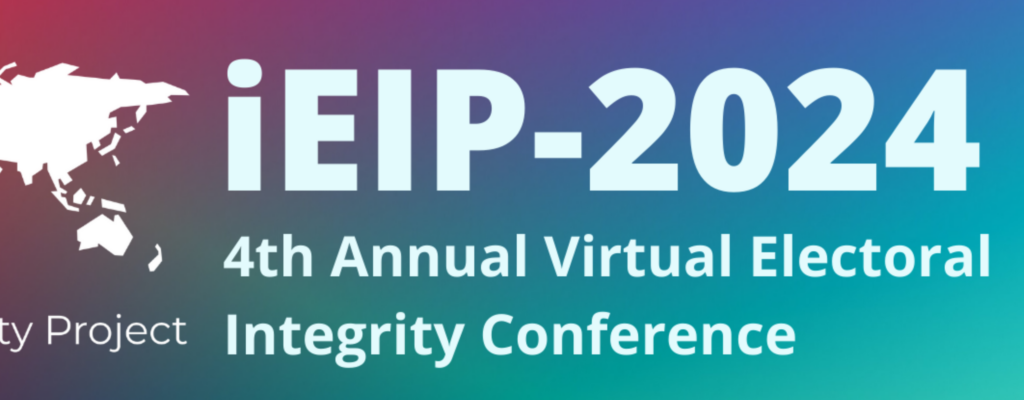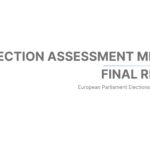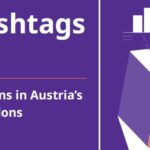
European Union,General,International
The EU’s Artificial Intelligence Act and its impact on electoral processes
Vienna, 9 July 2024: The purpose of the EU AI Act is among others to “ensuring a high level of protection of health, safety, fundamental rights enshrined in the Charter of Fundamental Rights, including democracy, the rule of law and environmental protection, against the harmful effects of the AI systems in the Union”. Adopted by the Council of the EU on 21 May 2024, the AI Act is expected to be published in the EU Official Journal during the second half of July 2024.
Armin Rabitsch from Election-Watch.EU Election-Watch.EU presented the joint-practitioner’s paper “EU’s Artificial Intelligence Act and its Impact on Electoral Processes: A Human Rights-Based Approach” at the fourth Virtual Electoral Integrity Conference (iEIP). The paper was prepared together with Sofia Calabrese from European Partnership for Democracy (EPD). The findings build on the EU-wide Election Assessment Mission (EAM) of the citizen observer network of Election-Watch.EU and EPD’s workshop on identifying AI systems posing risks to election integrity and related mitigation measures under the AI Act.
The presented paper addresses the key question on how the EU’s AI Act can be implemented to protect the integrity of elections, privacy rights and the freedom of expression against the impact of interference – especially mal-intended – by AI supported actors and systems. In particular, it analyses the implications of the new rules on the integrity of electoral processes and assesses how the EU intends to regulate AI systems that pose risks to elections. The purpose has been to provide policy guidance to the European Commission and European legislators by proposing mitigating measures related to main risks identified.
There has been overall an immense achievement by the EU to regulate the digital space within the past two years by passing the :
✴ AI Act
✴Digital Services Act
✴Digital Market Act
✴European Media Freedom Act
✴Transparency and Targeting of Political Advertising Regulation and
✴anti-SLAPP Directive
Together with the General Data Protection Regulation (GDPR) this builds a solid European legal framework of the digital space. However, this still requires better enforcement and further secondary legislation to protect fundamental rights and freedoms.
Election-Watch.EU and EPD provide the following recommendations to the European Commission among others:
1️⃣ Consider a moratorium for the use of AI systems in electoral campaigning to better understand the rise of anti-democratic political forces using AI;
2️⃣ Provide independent fundamental rights impact and risk assessments of the use of AI in electoral processes to assess individual & societal harm;
3️⃣ Elaborate on the definition of individual/societal harm in elections given that one vote can make a difference in elections.
The iEIP panel 3 on practitioners’ insights on regulating technology in elections was chaired by Carla Luis (Universidade de Coimbra) with discussant Gábor Polyák (Eötvös Loránd University) and included the following panelists:
-
Building Resilience Against Election Influence Operations: How European Countries Can Protect the Electoral Experience – Daria Azariev North (IFES), Nikoleta Diossy (IFES), Krysia Sikora (German Marshall Fund, Alliance for Securing Democracy)
-
Opportunities and limits for digital provenance to “save online truth” – Ingo Boltz (The Carter Center)
-
The AI Election Security Handbook – Rachael Dean Wilson (German Marshall Fund, Alliance for Securing Democracy) and Lindsay Gorman (German Marshall Fund, GMF Tech)
-
The EU’s Artificial Intelligence Act and its impact on electoral processes: a human rights-based approach – Armin Rabitsch (Election-Watch.EU) and Sofia Calabrese (European Partnership for Democracy)
2024 EP elections, accountability, AI Act, AI and elections, AI impact on electoral processes, AI impact on freedom of expression, challenges to elections by AI, citizen led election observation, data protection in elections, EP elections 2024
 Election Assessment Mission Report with good practice examples published
Election Assessment Mission Report with good practice examples published
 Presenting Electoral Reform Paper at the Electoral Integrity Project Conference
Presenting Electoral Reform Paper at the Electoral Integrity Project Conference
 Social media monitoring of Austria’s general election campaign
Social media monitoring of Austria’s general election campaign
 How best to assess hybrid threats in elections?
How best to assess hybrid threats in elections?
 Telegram and its role in Austria’s 2024 election
Telegram and its role in Austria’s 2024 election